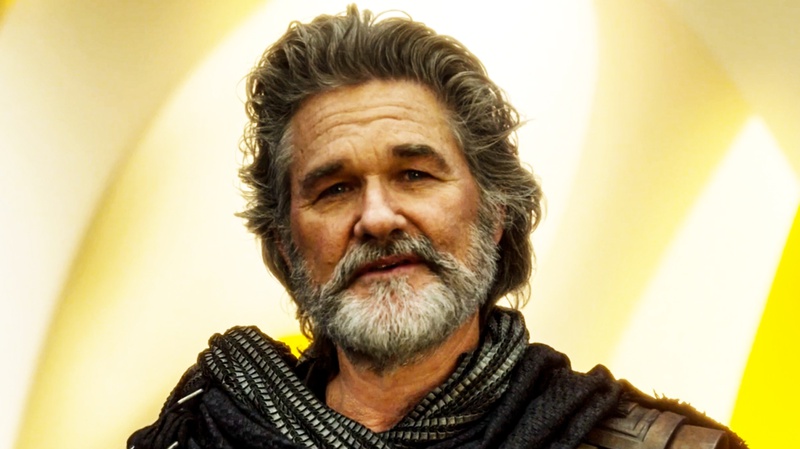Marvel Producer Admits Kurt Russell's MCU Villain Is Not Emotionally Investing To Him

One of the most common criticisms that have faced the Marvel Cinematic Universe has been its weak villains, but lately, Marvel Studios has been attempting to rectify this problem. Over the years, this seems to have been addressed more frequently, with the studios' more recent films from Phase 3 having some of the franchise's best villains like Michael Keaton's Vulture and Josh Brolin's Thanos.
In The Falcon and the Winter Soldier, Erin Kellyman's Karli Morgenthau has been positioned as the primary villain. Still, as fans saw in the most recent episode, it's more likely that Wyatt Russell's John Walker will soon take that spot after staining Steve Rogers' shield with blood.
In a new interview with Marvel Studios producer Nate Moore, he explains what he believes makes good villains in the MCU.
DEFLATING EGO (THE LIVING PLANET)

Vanity Fair invited longtime Marvel producer Nate Moore and director Kari Skogland onto their podcast Still Watching to discuss The Falcon and the Winter Soldier and various other topics such as villains.
When directly asked about what they believe makes “a great Marvel villain,” Moore explained that at the core, these villains have to have “an emotional reason for what they're doing that you and I would call reasonable” and that anything that varies from that becomes incomprehensible to viewers:
“Yeah, the greatest Marvel villains are villains who have an emotional reason for what they're doing that you and I would call reasonable. I never think it works, even as just a fan. To your point, any villain that wants to take over the world, I go 'why?' I can't imagine what kind of emotional trauma causes that, but if you can really think about what is making a villain tick, and it feels like something that you and I would go like 'Yeah, I can see that.'”
Moore goes on to list, what he believes, to be good explains of villains from past Marvel films and series like Killmonger, Karli, and Thanos:
“Those are the best villains. Killmonger, really interesting, right? Because you go 'I get it.' Karli Morgenthau, 'Yeah, I get it, man.' It's playing out our everyday lives, you know? Thanos, 'I get it.' They're all rooted in issues and emotions that are of our world, I think it's so much easier to make those characters great than villains that seem a little like...”
The longtime producer continues his point, discussing one particular villain from Marvel that he thought wasn't as great with Kurt Russell's Ego from Guardians of the Galaxy Vol. 2, who Moore said, “There's nothing emotional for me to invest in,” but still praised Russell himself in the role:
“I don't wanna ding our own villains, but Ego, I kinda don't get it. Like I kinda don't get his deal. So, I think Kurt Russell is great, I think it looked fantastic, I don't really get it emotionally. There's nothing emotional for me to invest in and I think when we can figure out those emotional anchors are that, again, if the movie were made differently, they would be the heroes. Those are the best. Those are the best films.”
VILLAINOUS LESSONS LEARNED FOR MCU
It should be noted that Nate Moore was an executive producer on Captain America: The Winter Soldier, Captain America: Civil War, Black Panther, and the upcoming Eternals. So, Moore poking at other films that he was mostly uninvolved with producing makes sense, as he obviously has a different perspective about how he sees connecting villains to the audience.
In a small defense of Kurt Russell's Ego, while his ultimate goal was to wipe out all life in the universe and to replace it with himself is nonsensical on paper—it is in his name. An egotistical, toxic, and unemphatic individual that attempted to sway Peter Quill, his son, into seeing his perspective. The only thing that saved Quill from becoming like his father was the love he had for his mother.
Moore is correct that motivation like that only works thematically for the whole, while the character lacks, as Moore put it, any emotional connection to the audience. It makes sense then why all the films that Moore has produced have had villains that at least pushed a somewhat understandable perspective, such as peace through fear, a hatred of fascist superheroes, and a young boy abandoned by his people.
Considering Nate Moore was an executive producer for Eternals, it will be curious to see how the villain in that film will emotionally resonate with audiences.

No comments: